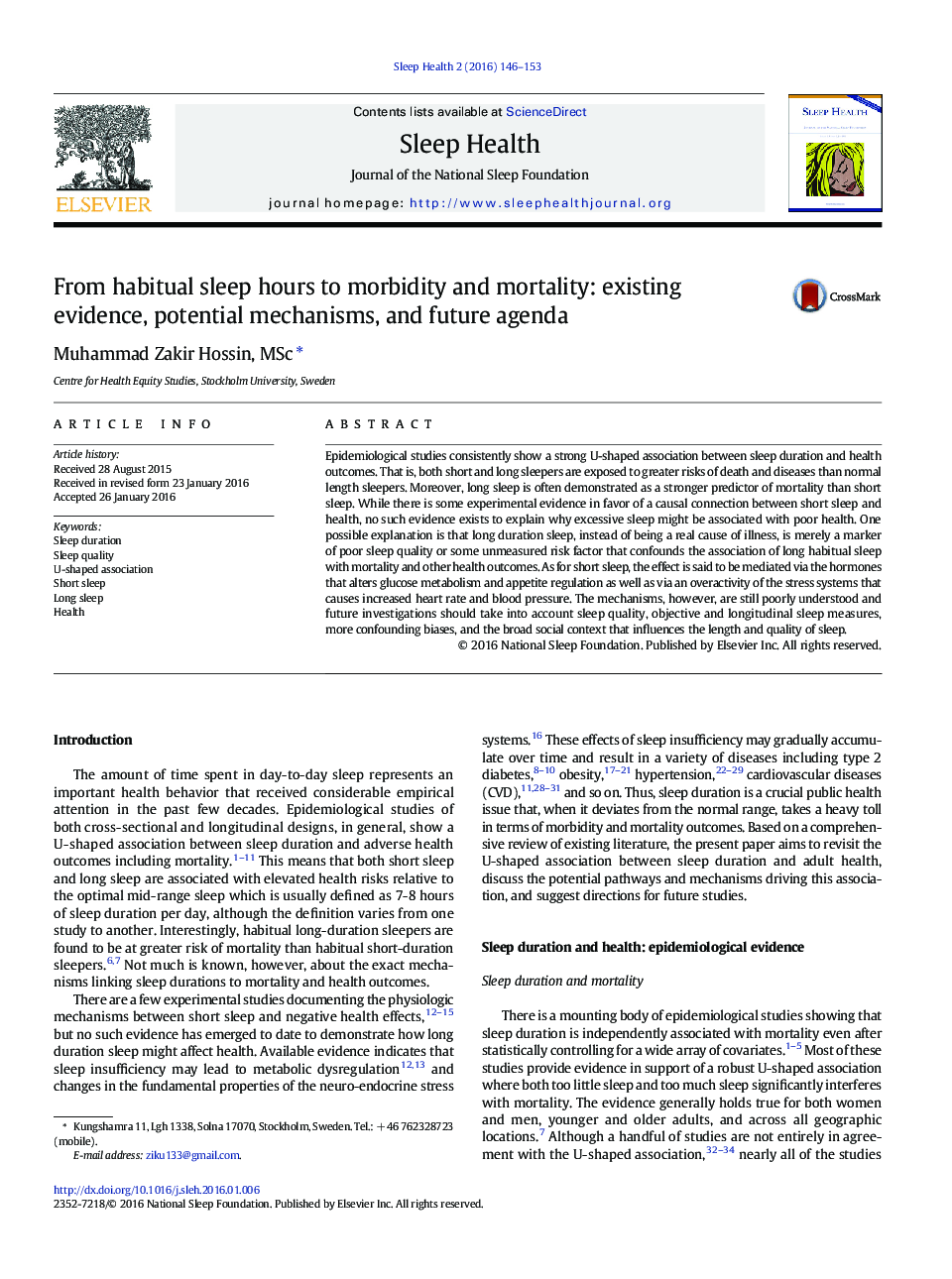| کد مقاله | کد نشریه | سال انتشار | مقاله انگلیسی | نسخه تمام متن |
|---|---|---|---|---|
| 916250 | 918832 | 2016 | 8 صفحه PDF | دانلود رایگان |
Epidemiological studies consistently show a strong U-shaped association between sleep duration and health outcomes. That is, both short and long sleepers are exposed to greater risks of death and diseases than normal length sleepers. Moreover, long sleep is often demonstrated as a stronger predictor of mortality than short sleep. While there is some experimental evidence in favor of a causal connection between short sleep and health, no such evidence exists to explain why excessive sleep might be associated with poor health. One possible explanation is that long duration sleep, instead of being a real cause of illness, is merely a marker of poor sleep quality or some unmeasured risk factor that confounds the association of long habitual sleep with mortality and other health outcomes. As for short sleep, the effect is said to be mediated via the hormones that alters glucose metabolism and appetite regulation as well as via an overactivity of the stress systems that causes increased heart rate and blood pressure. The mechanisms, however, are still poorly understood and future investigations should take into account sleep quality, objective and longitudinal sleep measures, more confounding biases, and the broad social context that influences the length and quality of sleep.
Journal: Sleep Health - Volume 2, Issue 2, June 2016, Pages 146–153
